Tuesday, November 12, 2019
The HINDU Notes – 12th November 2019
VisionIAS
20:14

📰 Capacity-building programme for Afghan diplomats begins
Two-week intensive course is part of India-China initiative
•Indian and Chinese officials on Monday began a course to train diplomats from Afghanistan at the Foreign Service Institute (FSI) here run by the External Affairs Ministry. The two-week intensive programme, launched in the presence of Chinese Ambassador to India Sun Weidong, is designed to give the visiting diplomats an exposure to Indian diplomatic practices and traditions.
•Inaugurating the event, J.S. Mukul, Dean of the Foreign Service Institute, said 179 Afghan diplomats had been trained at the FSI till date, the largest number of diplomats to be trained from any country at the institute. It had emerged as an important centre of training of diplomats in South Asia.
•Monday’s event had an added significance as it was attended by Xu Jian, President of the China Foreign Affairs University (CFAU), and Wu Xiaoping, Director, Foreign Affairs Office of the CFAU. Apart from discussions on the training module for the Afghan students, Mr. Mukul held talks with Dr. Xu on the ways to strengthen intra-BRICS diplomatic training as both the FSI and the CFAU were parties to a BRICS-level MoU to train diplomats.
•The joint training of Afghan diplomats is part of the outcome of the Wuhan Summit between Prime Minister Narendra Modi and Chinese President Xi Jinping. Accordingly, the first joint training programme was held from October 15 to 26 in 2018.
📰 Anaemia among men a major public health problem
Monday, November 11, 2019
The HINDU Notes – 11th November 2019
VisionIAS
20:38

📰 After RCEP reticence, need for reform recalibration
India needs to prepare for the next round of structural reforms to join global value chains and unleash manufacturing
•Last Monday, on November 4, 2019, Prime Minister Narendra Modi announced that India would not sign on to the Regional Comprehensive Economic Partnership (RCEP) agreement. The agreement, which is dubbed as the world’s biggest trade agreement, is expected to proceed with the 15 other members of the agreement, including Australia, China, Japan, New Zealand, South Korea, and the 10 member states of the Association of Southeast Asian Nations (ASEAN).
•India’s decision to withdraw at this stage, particularly in light of India’s own articulation of its national interest and its ambitions internally and on the world stage, reflects an inability to translate ambitions into action.
Defining ‘national interest’
•A long-standing goal for India, articulated by multiple governments from across India’s political spectrum, is to generate a high level of sustained economic growth. Such growth matters for two reasons: within India, it will create millions of jobs and secure a stable future for India’s young population, and externally, to facilitate India’s rise as one of the poles in a multipolar 21st century. The Prime Minister articulated this same vision, in 2014, in his first Independence Day speech as Prime Minister, arguing “India cannot decide its future by remaining isolated and sitting alone in a corner. The economics of the world have changed and, therefore, we will have to act accordingly.” His path to “acting differently” was focused on “promot[ing] the manufacturing sector.”
•Soon after his speech, he launched the “Make in India” programme, encouraging global companies to manufacture products in India. He articulated the goal of the initiative as “We launched the Make in India campaign to create employment and self-employment opportunities for our youth. We are working aggressively towards making India a Global Manufacturing Hub.” This articulation of India’s economic interests is particularly relevant in the context of India’s decision on RCEP.
Concerns and imperatives
•In defending India’s withdrawal from the RCEP, the government has articulated three key concerns. The first is the negative impact of joining the agreement in key constituencies in India, particularly farmers and small business owners. The second is the lack of concessions within the final agreement on key demands for India such as work visas and liberalisation in services. The final is regarding India’s trade deficit, and how those deficits would expand under the RCEP, given that India currently runs deficits with 11 of the 15 other member states. This concern is particularly acute when it relates to China, with India fearing an influx of cheap Chinese imports into India.
•These concerns, particularly on the fears of Chinese imports and its impact on Indian domestic manufacturers, are legitimate and well-founded. Indeed, the Minister for External Affairs, S. Jaishankar, has argued that India has faced “unfair restricted market access” from China when it exports to the country, and Foreign Secretary Vijay Gokhale has pointed to “millions of non-tariff barriers” in China while accusing China of dumping.
•However, the answer to these concerns is not India’s withdrawal from the agreement.
•As academician James Crabtree has noted: “India had already won concessions, including implementation delays stretching into decades and safeguards to protect sensitive sectors like agriculture.” Moreover, as Arvind Panagariya, former Vice Chairman of NITI Aayog, stated in a TV interview, existing WTO rules “allow us to impose safeguard duties and anti-dumping,” which India has used and can continue to use against China when it comes to unfair trade practices.
Value chain integration
•Beyond these concerns, India has enormous strategic and long-term economic imperatives to join the RCEP. India’s ambitions to become a global hub for manufacturing means that it is the country’s long-term national interest to be integrated into global value chains. However, in Asia today, there are effectively now two economic structures — the RCEP and the Comprehensive and Progressive Agreement for Trans-Pacific Partnership (CPTPP) — which will effectively determine global value chains for manufacturing in Asia for years to come. India, now a part of neither architecture, will continue to remain unintegrated in such supply chains, and will see its ambitions of becoming a global manufacturing hub further delayed.
•Returning to India’s articulation of its national interest, this delay in integrating with global value chains will impact India’s internal and external ambitions. The World Bank found that when coupled with domestic reforms, joining such global value chains can “boost growth, create better jobs, and reduce poverty”. India’s own evidence shows that jobs linked to global value chains earn one-third more than those jobs focused on the domestic market. The inability to accede to the RCEP and ensure India’s integration into these emerging global value chains means India will lose out on a key opportunity to create such high-quality, high-paying jobs. Moreover, India’s absence in both of Asia’s two key economic architectures will take away from India’s goals as a regional and Indo-Pacific power, as well as a prospective global power.
•Given India’s own ambitions to generate growth and jobs through spurring manufacturing within India, and becoming a key player and rule-maker on the world stage, India’s decision to withdraw from the RCEP is not ideal. India now faces a choice: does it translate this withdrawal from the RCEP into a commitment for domestic reforms to prepare itself for the next opportunity to integrate itself into the global value chains and unleash Indian manufacturing? Or does it revise its ambitions and, as the Prime Minister said, remain “isolated and sitting alone in a corner?” Hopefully, India chooses the former path.
📰 A reward for ‘egregious’ violations
Daily Current Affairs, 11th November 2019
VisionIAS
20:07

1) National Education Day: 11th November
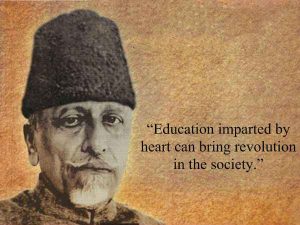
2) 5th edition of GES 2019 to be held in Bengaluru
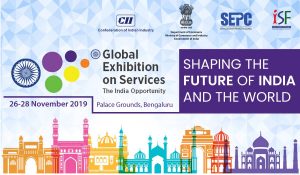
•The 5th edition of Global Exhibition on Services, GES 2019 is being held from November 26 to 28 at Bengaluru, Karnataka. The Global Exhibition on Services is an annual event which aims to engage industry and governments across the world and to promote greater exchange of trade in services between India and the rest of the world. India is looking to attract investments and partnerships in strategic areas like aviation and space programme, infrastructure, and telecom projects.
3) World Science Day for Peace and Development: 10 November
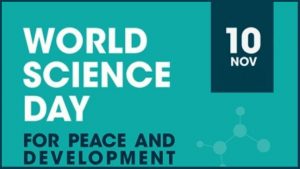
4) Indian Oil to set up 2G ethanol plant in Panipat
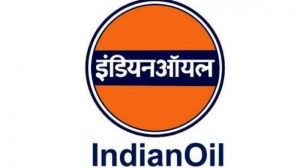
•The Ministry of Environment has granted clearance to the Indian Oil Corporation Ltd (IOCL) to set up a ₹ 766-crore 2G ethanol plant in Haryana’s Panipat district. The Ethanol produced in the plant will be exclusively used to blend transportation fuels. The project also aims at doubling farmers income.
5) Defence innovations conference to showcase accomplishments of iDEX
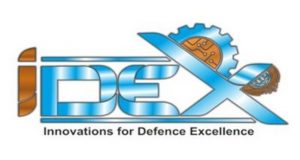
6) CJI Ranjan Gogoi releases Assamese version of book ‘Courts of India: Past to Present’
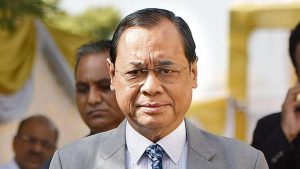
7) Sanskrit Bharati Vishwa Sammelan begins in New Delhi
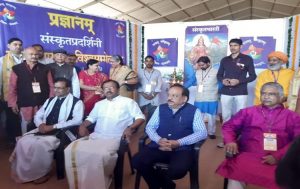
•An exhibition ‘Sanskriti Pradarshini’ has also been put up displaying manus, models and charts that establish different phases of the development of Sanskrit as a popular language, not only in India but also across the globe.
8) Banks cannot charge on NEFT transactions from January 2020
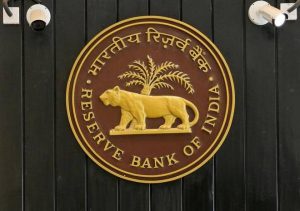
9) Anjani Kumar appointed as next Ambassador of India to the Republic of Mali
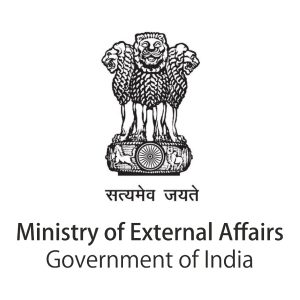
10) Karnataka Gramin Bank initiates ‘mobile ATMs’ in rural areas
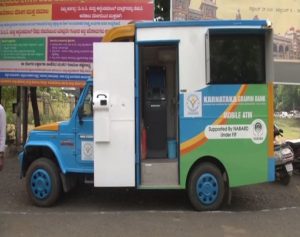
11) Tata Literature Live! to honour Shanta Gokhale with Lifetime Achievement award

12) Justice Sanjay Karol sworn in as Chief Justice of Patna High Court
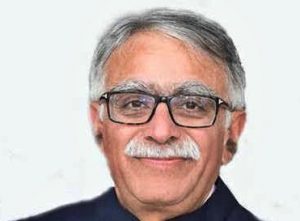
THE HINDU NEWSPAPER IMPORTANT ARTICLES 11.11.2019
Shubhra Ranjan PSIR Optional 2020 Test 2 PDF
VisionIAS
04:58
Shubhra Ranjan PSIR Optional 2020 Test 2 PDF
Now you have made up your mind to become IAS officer and looking for the books and study materials to achieve your goal. Well, you are on the right page. Now, here we are Sharing With You Shubhra Ranjan PSIR Optional 2020 Test Series With Solution PDF.
Click Here to download Shubhra Ranjan PSIR Optional 2020 Test 2 Question
Click Here to download Shubhra Ranjan PSIR Optional 2020 Test 2 Solution
Click Here to Like our Facebook page for latest updates and free ebooks
Vision IAS Mains 2020 Test 2 With Solution PDF
VisionIAS
04:58
Vision IAS Mains 2020 Test 2 With Solution PDF
Click Here to download Vision IAS Mains 2020 Test 2 Solution
Click Here to Like our Facebook page for latest updates and free ebooks
MPPSC Handwritten Notes in Hindi pdf Download
VisionIAS
04:58
MPPSC Handwritten Notes in Hindi pdf Download
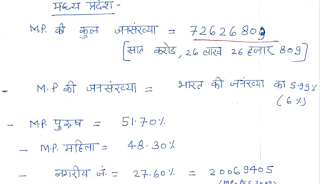
Click Here to download MPPSC Handwritten Notes in Hindi pdf
Click Here to Like our Facebook page for latest updates and free ebooks
Click Here to Like our Facebook page for latest updates and free ebooks


